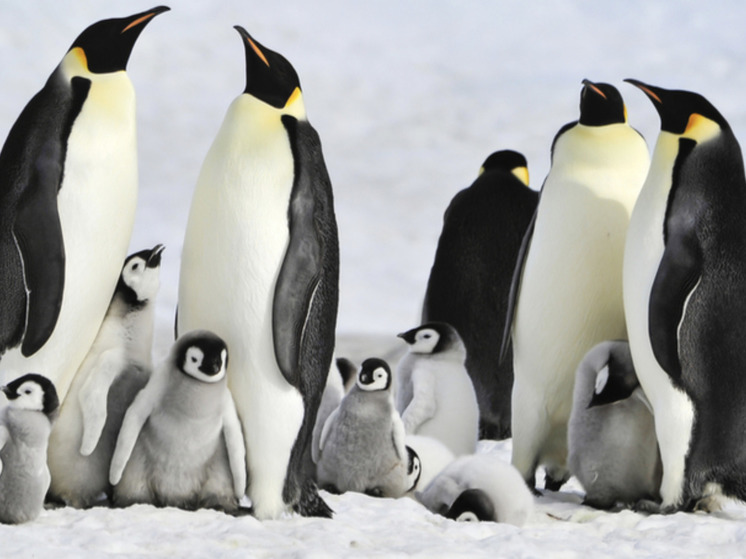They nap for 4 seconds and sleep this way for 11 hours
Penguins sleep 10 thousand times a day, but their sleep lasts 4 seconds, a new study has shown. Scientists have studied the lifestyle of penguin parents and learned that flightless birds get enough sleep and at the same time monitor their offspring.

In the wild, penguins sleep more than 11 hours a day, but, as it turns out, not all at once. New observations show that animals fall asleep thousands of times a day, but only for about four seconds at a time.
Antarctic penguins need this lifestyle to guard their eggs and chicks around the clock in their bustling colonies, Science magazine reported.
Short «microsleep,» researchers say, allow penguins to meet their daily sleep needs while remaining constantly vigilant over their nests.
A team from the Lyon Neuroscience Research Center and the Korean Polar Research Institute recorded sleep behavior in a colony in Antarctica. They used remote electroencephalogram (EEG) monitoring to find out when the animals closed their eyes. They collected data from 14 adults over 11 days on King George Island off the coast of Antarctica.
The authors say the findings suggest that, given penguins' breeding success, the benefits of sleep may increase gradually.
“These birds are like sleepy drivers, opening and closing their eyes, and they do this 24/7 for weeks on end. What’s amazing is that they are able to function normally and successfully raise their young,” says Niels Rattenborg, a sleep researcher at the Max Planck Institute for Biological Intelligence in Germany.
Chinstrap penguins, named for their thin line of black facial feathers that resemble a belt, typically lay their eggs in nests in November. As with many other species, married couples share responsibilities. One parent cares for the eggs and chicks alone, while the other goes fishing to provide food for the family.
While adults do not face many natural predators during the breeding season, shorttails Skuas hunt for eggs and small fluffy chicks. Other adults may also try to destroy the nest, so parents should always be on guard and zealously drag their children in case of danger.
The accompanying Perspectives article, written by experts from the University of California, San Diego and the University of Oxford, explains that the study challenges many beliefs about sleep.
“Evidence that sleep costs penguins this way.” to the detriment of health, would call into question the current interpretation of the fragmentary approach as harmful to sleep quality,” the authors decided.
The idea for the study came about when Won Young Lee, a biologist at the Korea Polar Research Institute, noticed that breeding penguins blinked their eyes frequently and appeared to doze during their long days of field observation. But the team needed to record brain waves to confirm they were sleeping.
“In these penguins, microsleep has some restorative functions that they might not survive otherwise,” he comments.
The researchers did not collect sleep data outside of the breeding season, but they speculate that penguins may sleep at longer intervals at other times of the year.
Sleep researcher Paul-Antoine Libourel says research needs to be done: “We don’t yet know whether the benefits of microsleep are the same as those of long-term sleep. We also did not know whether other penguin species sleep in the same fragmented manner.”
At that time, scientists had documented several other birds with special adaptations to sleep. While flying, for example, frigate birds can sleep with one half of their brain at a time, and northern elephant seals can doze for 10 or 15 minutes, such as during deep dives.
But researchers say microsleep Chinstrap penguins appear to represent a new extreme.
“Flightless birds live under conditions of increased stress. They breed in crowded colonies, and all their predators are there at the same time,” says Daniel Paraños Zitterbart, who studies penguins at Woods Hole Oceanographic Institution in Massachusetts. According to him, microsleep is an “amazing adaptation” that allows one to remain almost constantly alert.























































Свежие комментарии